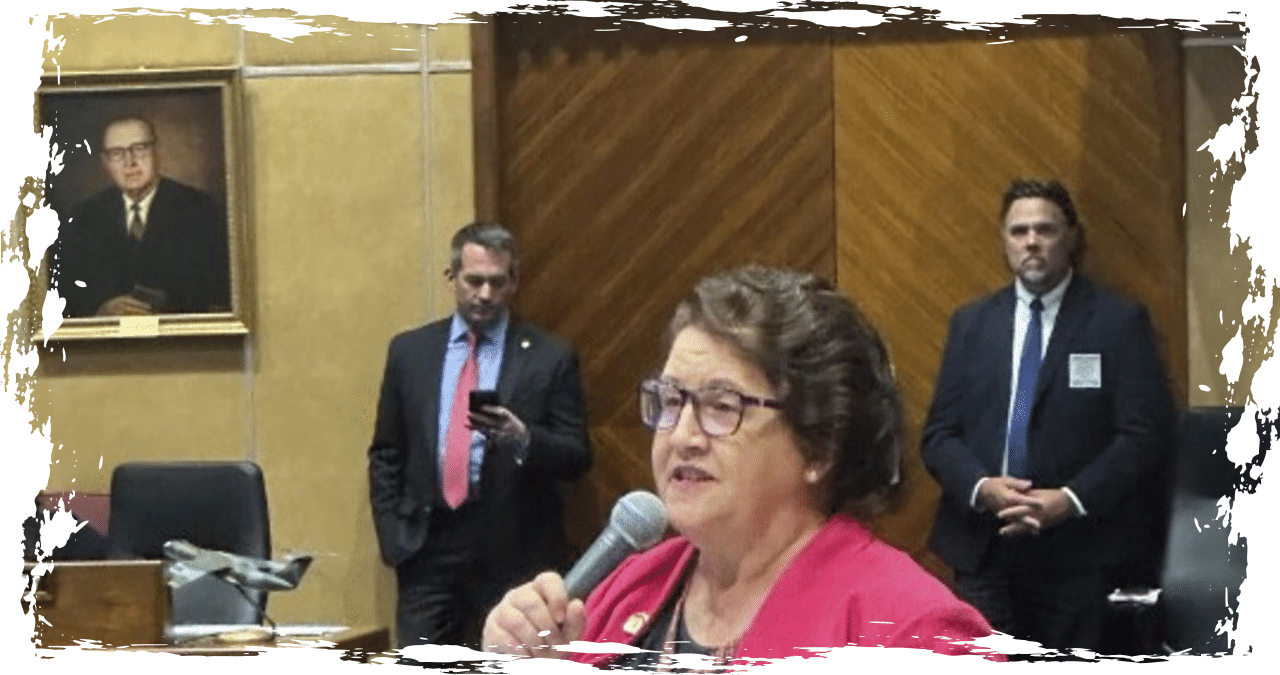Lawmakers in Arizona are set to vote on a proposal that would make it a state crime to cross the Arizona-Mexico border anywhere except through a port of entry. This would effectively put Arizona in charge of immigration enforcement. The proposal is up for a final vote on Tuesday, and if passed, voters will have the final say in November on whether or not it becomes a law.
The Arizona House is set to vote on a measure that would grant authority to state and local police to arrest individuals who cross the border without authorization. Additionally, the measure would give state judges the power to order those convicted of this offense to return to their home country.
An Arizona Senate proposal, approved on a 16-13 party-line vote, bears striking similarities to a Texas law that has been temporarily halted by a federal appeals court amid legal challenges. If the proposal passes the House, it would effectively circumvent the veto of Democratic Governor Katie Hobbs, who rejected a similar proposal earlier in March. Instead, the proposal would be put to the vote on November 5.
Advocates of the measure argue that despite the existing federal law prohibiting the unauthorized entry of migrants into the United States, it is necessary to have this measure in place. This is due to the insufficient efforts made by the federal government in preventing individuals from illegally crossing through Arizona’s extensive and permeable border with Mexico. Furthermore, it has been observed that certain individuals who enter Arizona without authorization engage in identity theft and exploit public benefits.
Critics argue that the proposition would result in racial profiling by law enforcement and burden the state with additional expenses from agencies that lack expertise in immigration law. Furthermore, they claim that it would harm Arizona’s standing in the business world.
Advocates for the ballot initiative dismissed worries about racial profiling, asserting that law enforcement officials would still need to establish probable cause in order to detain individuals who enter Arizona outside of designated entry points.
Supporters of the proposal argue that it specifically targets the state’s border region, unlike Arizona’s 2010 immigration law which affected people throughout the state. However, critics have pointed out that the measure does not include any restrictions on where it can be enforced within the state, leading to concerns about potential widespread effects.
Included in the ballot proposal are additional provisions that are not directly related to immigration, unlike the Texas measure. One of these provisions is the criminalization of selling fentanyl that results in someone’s death, which could lead to a felony charge punishable by up to 10 years in prison. Additionally, the proposal includes a requirement that government agencies administering benefit programs use a federal database to confirm the eligibility of noncitizens for benefits.
Opponents have raised concerns about possible legal expenses related to the proposed immigration smuggling ban in Arizona. They cited an incident from 2005 when then-Maricopa County Sheriff Joe Arpaio conducted numerous traffic patrols that specifically targeted immigrants, using the same law. This resulted in a verdict of racial profiling in 2013, and taxpayers have since had to bear the brunt of the legal and compliance costs, which have already escalated to $265 million and are projected to reach $314 million by July 2025.
According to the current proposition, individuals who are convicted of crossing the border illegally for the first time will face a misdemeanor charge and may be subject to a jail term of up to six months. After serving their sentence, state judges may require these individuals to return to their home country. However, the courts may dismiss the case if the arrested individuals agree to return home.
If local or county law enforcement agencies do not have enough space to house individuals charged or convicted under the measure, the proposed legislation would mandate that the state corrections department take them into custody.
The federal government has made exceptions for individuals who have been granted lawful presence status or asylum in the proposal.
Border crossers can only be arrested in between ports once the Texas law or similar laws from other states have been in effect for at least 60 days.
Republican lawmakers in Arizona have made multiple attempts in the past to make it a crime for migrants who are not authorized to be in the United States.
In 2010, while passing the immigration bill, the Arizona Legislature contemplated broadening the state’s trespassing law to make the presence of immigrants a criminal offense, carrying criminal penalties. However, the legislature decided to remove the trespassing language and replaced it with a mandate that officers must question people’s immigration status if they were suspected of being in the country illegally while enforcing other laws.
Despite critics’ concerns about racial profiling, the U.S. Supreme Court upheld the requirement for questioning. However, enforcement of other sections of the law was barred by courts.



